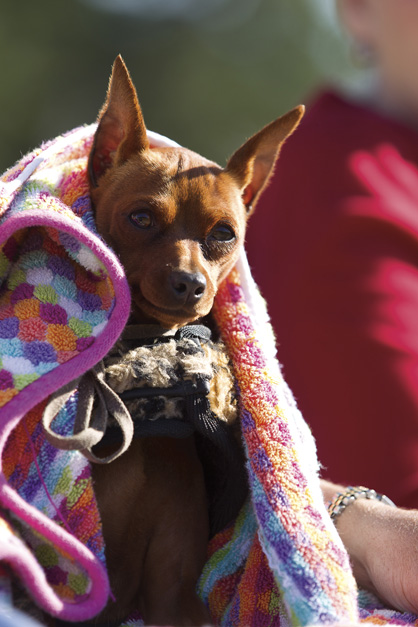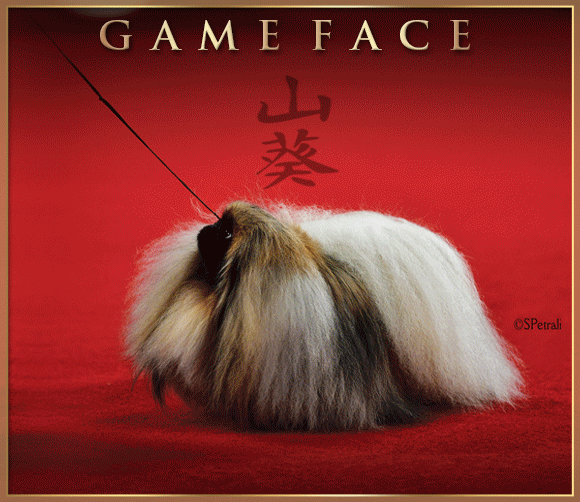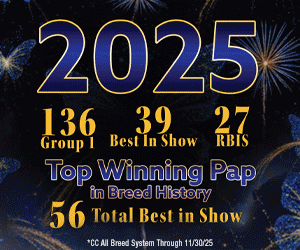The Handler-Client Relationship
by Buris Boshell, M.D.
From the archives of The Canine Chronicle, November, 1993
The essence of the handler-client relationship is integrity, trust and professionalism. In a recent article, I wrote about perspective and nowhere in the world is this more important than in the relationship between the client and handler.
WHAT CONSTITUTES A GOOD CLIENT?
The client, first of all, must have a worthy dog and must be able to afford to compete, i.e., handler fees, entry fees, advertising; and they must be willing to pay each in a timely manner. The client must be capable of communicating with the handler as well as others. More importantly, the client should be a humble loser as well as a gracious winner. A temperamental, arrogant owner can materially influence the show career of a dog. An owner must be appreciative of the merits as well as the faults of his dog and respect the qualities of the competition’s dog. It is helpful if the owner is a true dog lover and not just a wealthy person who buys and promotes dogs just to massage their ego.
I am taking the liberty of inserting a copy of the Code of Ethics of the Canadian Professional Handlers Association which I feel has a lot of merit. You will see it at the end of this article.
Basically, a handler-client relationship should be a straight-forward, honest business relationship. The handler should make reasonable charges and expect payment in kind. A handler who takes a top dog for no fee or at a very reduced fee is going to be a loser in the long run. Clients can change their mind and move a dog in a New York skinny minute and then what does the trainer-handler have to show for his efforts? It is far better to start off slow and grow steadily by working harder than the competition. The handling professional is like any other. There is always room at the top for anyone who is willing to persevere.
A new handler may find it necessary to work another job until his string of dogs warrant full-time handling and the fees to support the handler. The fewer dogs you have, the more time you have for conditioning, grooming and training, which leads to more winning and more clients (and more money). I say this to all handlers: Don’t try short cuts!
The client must accept the fact that the handler has other dogs and other responsibilities. Don’t expect the handler’s undivided attention. I recently witnessed a client come to the ring where the handler was showing another client’s dog and essentially demand that the handler leave the ring and start grooming her dog–two hours before it was to go in the ring. This is both unreasonable and irresponsible. If a client wants the handler’s full attention, they should be ready to pay that handler’s full salary and expenses. Most good handlers will not accept a one-client-only situation for obvious reasons.
Communication is the watch word for a successful handler-client relationship. I have seen many handlers lose top clients due to lack of communication. You have to communicate with your customers no matter what business you are in and showing dogs is no different.
Handling dogs is hard work. Therefore, if an individual is not willing to arise early and work late, he should stay out of the business.
On the other hand, showing dogs is demanding and expensive. If the owner cannot afford it, he should likewise stay out of the business. A handler has daily and weekly expenses which the owner must realize and pay in a timely fashion.
Problems exist in all aspects of life, but breeding and showing a top dog can be fun and very rewarding if all three ingredients are present; a top dog, a mature hard-working handler, and an understanding, loyal owner who all pull together and communicate with one another.
CODE OF ETHICS
- I will familiarize myself with the rules and regulations of the C.P.H.A., the C.K.C., and this Code of Ethics. I will abide by these rules to the utmost of my ability, and I will deem it my duty to report to the Board of Directors of the C.P.H.A. any infraction of these rules by a member of the C.P.H.A.
- I will not accept any dogs from any other C.P.H.A. member’s client until that member has been apprised of the situation and all his accounts have been satisfied in full.
- I will conduct myself in a professional manner at all times. I will always be courteous and sportsman-like whenever I show dogs, no matter what the outcome of the awards may be.
- I will not maliciously criticize or discuss the abilities or ineptitudes of my fellow handlers or exhibitors nor any of the dogs they may be showing.
- I will, to the best of my ability, aid any fellow handler, who lives by this Code, in handling of his/her dogs should the occasion arise where he/she is unable to handle them himself, providing it does not jeopardize any of my clients or their dogs.
- I will deal with my clients in a professional and businesslike manner, and I will advise them of all show results, wins or placings and tender them all ribbons and trophies won by their dogs within a reasonable period.
- I dedicate myself to strive continuously to improve my knowledge and skill in the practice of my profession for the benefit of those who employ me.
- I will not, in any manner or action, belittle or berate any judge or their decisions.
- The fees are for my services rendered. An itemized bill shall be rendered monthly.
- Unless prior arrangements have been made with a client, a client’s dog must be given priority over any dogs owned by the handler.
- As a member of the Canadian Professional Handlers Association, I realize I am their representative whenever I am in the public eye, and will conduct myself within the confines of this Code and pledge to uphold its principles and intent.
What constitutes a good handler?
- A good loser
- Integrity and honesty
- Ability to bond to animals easily and to bring out the best of each in the show ring
- Loyalty
- Basic knowledge of the animals that he shows
- A person willing to work, train, condition and care for his charges
- Maturity
Short URL: http://caninechronicle.com/?p=184358
Comments are closed














